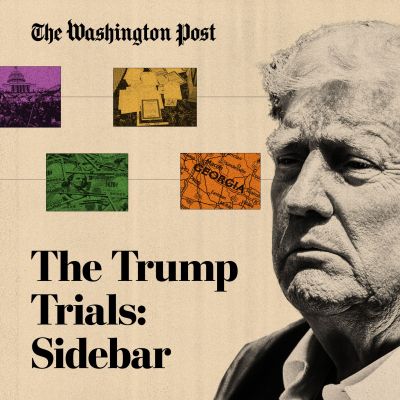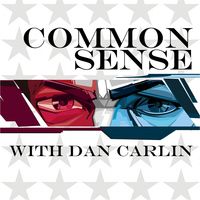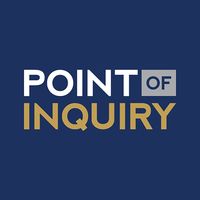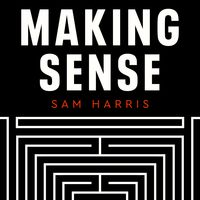The Washington Post’s Libby Casey, Rhonda Colvin and James Hohmann gather for a weekly conversation about former president Donald Trump’s ongoing legal troubles. As trials loom in New York, Florida, Georgia and Washington, D.C., the team will break down the most important – and historic – twists and turns, all as Trump seeks a second term as president. The crew will sit down each Thursday (with the occasional breaking news episode) to discuss what has happened that week, and what’s coming up the next week – often with guest appearances from Washington Post reporters. Listen in to see how you can submit your own questions for the team to answer.
Gesamtlänge aller Episoden: 5 days 11 hours 37 minutes
recommended podcasts
episode 10: Co-conspirator #1
In this week's episode, the crew discusses what's happened in former president Donald Trump's New York trial so far – and what we're hearing from witnesses. Washington Post reporter Devlin Barrett returns to take us inside the courtroom, while senior video journalist JM Rieger analyzes Trump's repetitive, falsehood-filled statements outside the courtroom.
episode 10: Sleepy Don
In our second episode, the crew discusses the jurors selected during the first two days of former president Donald Trump's Manhattan criminal trial – and why plenty of other prospective jurors were dismissed. Washington Post reporter Devlin Barrett joins to discuss what it's like covering the trial from inside the courthouse.
episode 10: No cameras in court
In our first episode, the crew discusses the first day of former president Donald Trump's criminal trial in the hush money case brought by Manhattan District Attorney Alvin Bragg, and how jury selection could play out. Plus - why the trial won't be televised, and how much trouble Trump could be in. Michael Cadenhead joins to discuss his recent trip to New York to ask Manhattanites if they could serve as impartial jurors in the trial.
The Trump Trials: Sidebar
The Washington Post's Libby Casey, Rhonda Colvin and James Hohmann will host a weekly conversation as former president Donald Trump faces legal challenges in New York, Florida, Georgia and Washington, D.C. On the new show, "The Trump Trials: Sidebar," the hosts will break down the latest twists and turns as Trump contends with court appearances and seeks a second presidential term.
Introducing: "The Campaign Moment"
Listen to The Washington Post's new weekly politics roundtable and then go follow "The Campaign Moment" wherever you listen.
Introducing, "Impromptu"
“Impromptu” from Washington Post Opinions invites listeners to eavesdrop on our columnists as they have frank, thoughtful conversations on the news and cultural debates they can’t stop thinking about.
Try This: Stop trying to fall asleep
“Try This” from The Washington Post is a series of audio courses designed to jump-start the parts of life where we can all use a few pointers — with pithy, snackable solutions you can easily use.
The Empty Grave of Comrade Bishop: ‘Somebody knows’
Forty years ago, the body of a prime minister went missing. The Post’s Martine Powers asks: Who’s responsible?
Introducing “The Empty Grave of Comrade Bishop”
Grenada’s revolutionary leader was executed in a coup in 1983, with seven others. The whereabouts of their remains are unknown. Now, The Washington Post’s Martine Powers uncovers new answers about how the U.S. fits into this 40-year-old Caribbean mystery.
Introducing “Field Trip”
Journey through the messy past and uncertain future of America’s national parks. The Washington Post’s Lillian Cunningham ventures off the marked trail to better understand the most urgent stories playing out in five iconic landscapes today.








































